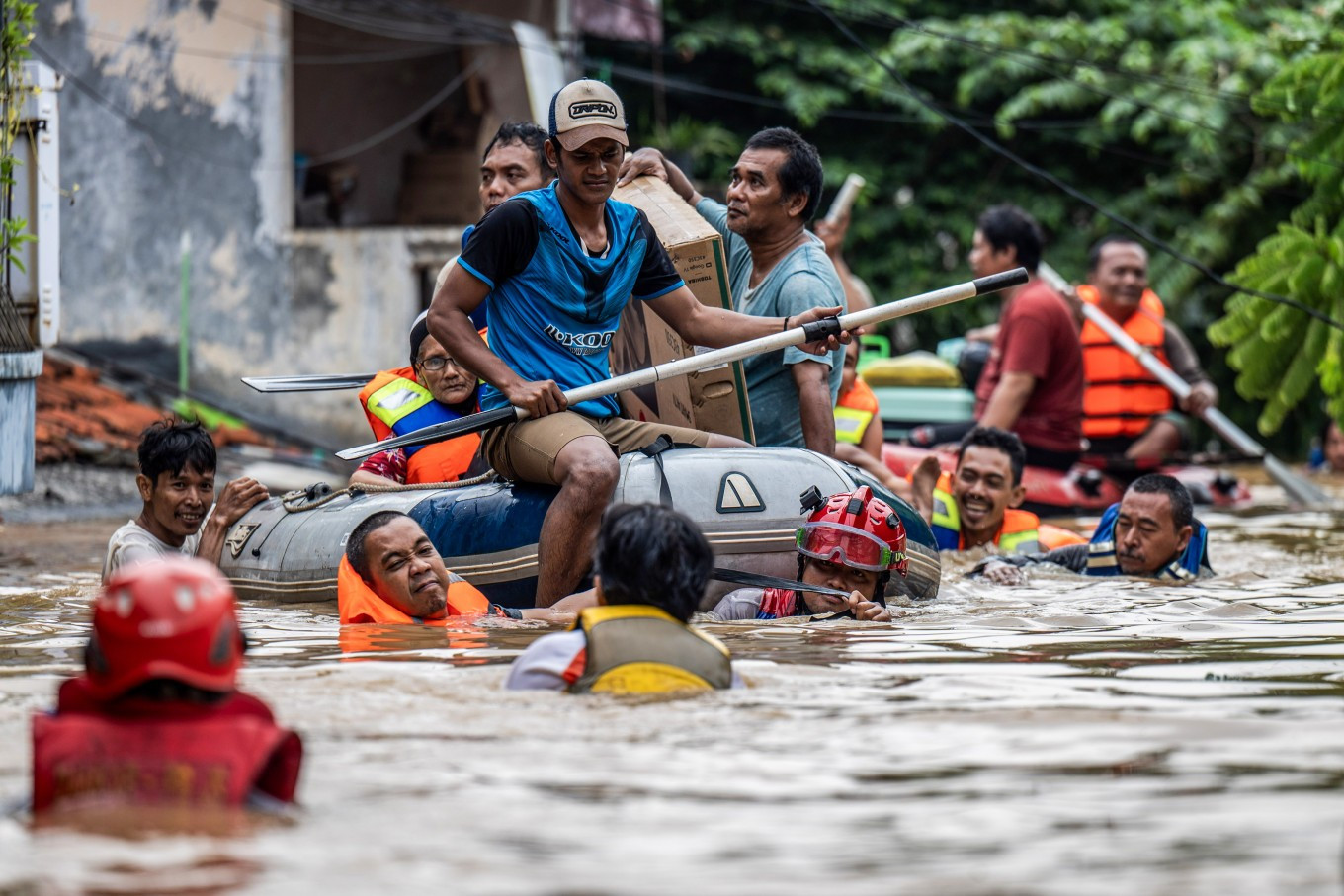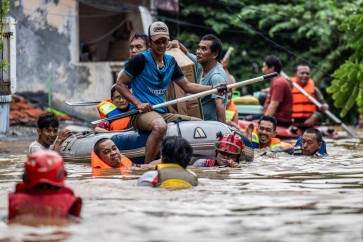Popular Reads
Top Results
Can't find what you're looking for?
View all search resultsPopular Reads
Top Results
Can't find what you're looking for?
View all search resultsAnalysis: Greater Jakarta floods and a never-ending cycle of false promises
Change text size
Gift Premium Articles
to Anyone
T
he Greater Jakarta area cannot seem to catch a break as it recently suffered its worst flood since 2020, in what is dubbed the "five-year flood cycle”. Jakarta Governor Pramono Anung and West Java Governor Dedi Mulyadi, who have only been in office for a month, have been criticized throughout this crisis as their constituents demand answers and adequate action to address the recurring natural disaster striking their regions.
Mega floods hitting the agglomeration area of the Jakarta Special Region and its buffer cities of Bogor, Depok, Tangerang and Bekasi have been a tale as old as time. The issue has plagued every administration dating back as far as 1621 under the colonial Dutch East Indies.
The metropolis will continue to be susceptible to flooding because of global rising sea levels caused by climate change and the area’s unfortunate downstream location, taking in rainfall from its upstream neighbors. Jakarta and its neighbors sit on vulnerable land, but it is no excuse for the systematic urban planning failures that have turned floods into disasters.
During the 2020 flood, then-Jakarta governor Anies Baswedan was criticized heavily for his mismanagement of the disaster which claimed 67 lives and displaced tens of thousands of others. This recent flood, however, presents a peculiar case as the calamity came at the outset of all the new regional leaders’ tenures, having only been sworn in by President Prabowo Subianto on Feb. 21. Newly elected leaders now carry the burden of tackling an issue that precedes them and will most likely outlast their time in office.
Pramono has cited blockages in drainage channels and coastal flooding in northern Jakarta and has placed most of the blame on upstream overflow from outside the city through the Ciliwung River in the south as the causes of the disaster. “Yesterday's flood was entirely caused by runoff from upstream,” Pramono said.
The recent floods were especially severe in the east of Jakarta, extending into Bekasi. Though Bekasi city lies outside his official jurisdiction, Pramono has made a conspicuous show of providing assistance, sending municipal workers and other essential aid, including fire trucks and food supplies. Yet, his comments suggest more than goodwill. “What’s clear is, we must not end up helping but then have it become a problem for ourselves,” he said.
Jakarta has about 11 million inhabitants but on weekdays more than 3.6 million people commute from the buffer zones to work in the city.



















